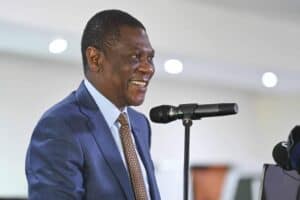What the government is doing wrong and what needs to be done.

There is widespread agreement that land reform in South Africa has failed, but that the extent is convoluted by the lack of unreliable data.
This was the view of Ben Cousins, a professor at the University of the Western Cape, and founder of the Institute for Poverty, Land and Agrarian Studies, at a recent event hosted by the Centre for Constitutional Rights (CFCR) and the South African Institute for Race Relations (IRR), supported by the Konrad Adenauer Foundation (KAS).
Cousins also contended that land reform in general requires more applicable skills and that institutions operate effectively – something that is not currently happening. “Elites have captured the land reform agenda, and land reform has been politically misdirected under the hands of corrupt officials. There is however an emerging class of successful black commercial farmers,” he said.
He refuted the assertion made by Gwen Ngwenya that 90% of claimants preferred cash, and explained that if a claim was over urban land, the claimant could only be compensated in cash.
Referring to property rights, Cousins said that 60% of blacks have land outside the formal system, but do not have title deeds. This situation is further complicated by property sales that were not recorded at the deeds office and therefore the new owners do not have title deeds.
Based on an estimation that the bulk of food is produced by 20% of commercial farms, Cousins suggested a provocative policy of redistributing the remaining 80% to small black farmers. This would not put food security at risk. He emphasized that small productive farmers must be supported, and that the informal sector must be supported with secure informal land rights.
Constance Mogale of the Land Access Movement of South Africa (Lamosa) said that the public is not given a meaningful opportunity to participate in discussions on land reform, and referred to one instance where public hearings were announced on Christmas Eve.
She also cited a Constitutional judgment on land access that emphasised that public participation must be real, and must provide the public with the opportunity to be heard where they are capable of influencing the decision to be taken.
Mogale also questioned whether customary rights are recognised when property rights are being discussed.
Temba Nolutshungu, a director of the Free Market Foundation, argued that the government can do more by doing less. “The state’s surplus land should be redistributed – one family, one plot. Government should move away from scapegoating, and focus on what needs to be done.”
He added that land ownership brings about self-economic empowerment, and gives the owner access to capital, a view that was articulated by the Peruvian Economist Hernando de Soto, in his book the Mystery of Capital.
Brought to you by Moneyweb
Support Local Journalism
Add The Citizen as a Preferred Source on Google and follow us on Google News to see more of our trusted reporting in Google News and Top Stories.






